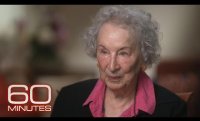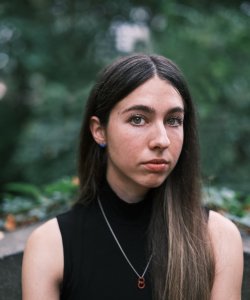Margaret Atwood on 60 Minutes
In this 60 Minutes interview, Margaret Atwood speaks about her response to book banning, her new memoir, Book of Lives: A Memoir of Sorts (Doubleday, 2025), and why she says the popularity of her novel The Handmaid’s Tale is “not due to me or the excellence of the book. It’s partly the twists and turns of history.”











